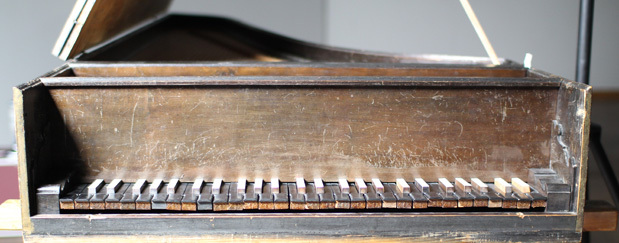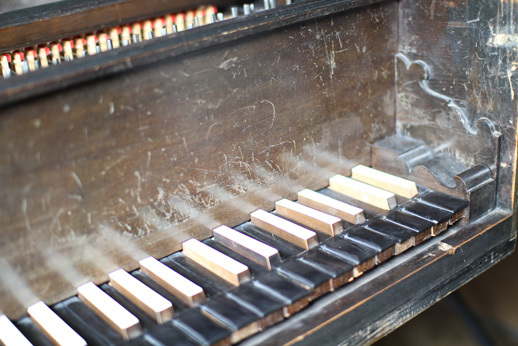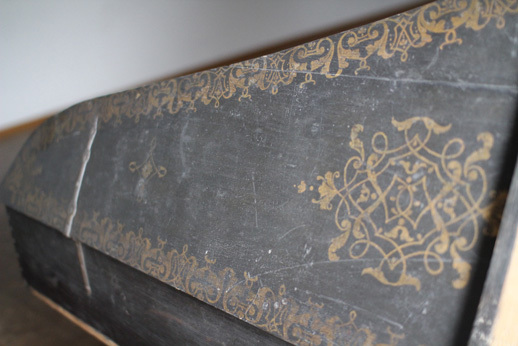mp3 Demos
Johann Caspar Simon - Preludium et Fuga A
Johann Sebastian Bach - Fuge C - WTK
Performed by Steffen Fahl
mp3 Demos - 2 x 8' stops
William Byrd - Excerpt from "The Galliarde to the Firste Pavian"
William Byrd - Excerpt from "My Ladye Nevels Grownde"
Elias Nicolaus Ammerbach - Passametzo
mp3 Demos - front 8' stop
William Byrd - Excerpt from "The Galliarde to the Firste Pavian"
William Byrd - Excerpt from "My Ladye Nevels Grownde"
Elias Nicolaus Ammerbach - Passametzo
mp3 Demos - rear 8' stop
William Byrd - Excerpt from "The Galliarde to the Firste Pavian"
William Byrd - Excerpt from "My Ladye Nevels Grownde"
Elias Nicolaus Ammerbach - Passametzo
Performed by Tobias Birkenbeil
The performances contain additional reverb.
The German Harpsichord 1738 library features one of the very few preserved historical German harpsichords, a very beautiful sounding instrument built by Christian Vater. The instrument - built in Hannover in 1738 - features very mellow low end and rich low mids, combined with majestic upper harmonics and a delicate treble range, which shows the German harpsichord tradition very well. Residing at the Germanische Nationalmuseum in Nuremberg, the harpsichord remains in great playable condition.

front view - photo by Nicolay Ketterer
The sample library features all three sounds of the instrument sampled separately - the front and a rear 8' register as well both together. The latter combination of both offering the beatufilly complex harmonics of the instrument. The Vater harpsichord is now available in the sampler for the first time, in its original Valotti tuning at 392 Hz. Presets at 440 Hz are also available.
Like all harpsichords, the instrument is not touch-sensitive like a piano. However, even if the differences are minuscule, not any given note will sound the same twice due to different resonances of body and strings.
Up to now, keyboards and samplers represented harpsichords mostly by triggering off the exact same digital sample when repeatedly playing a key. This makes for a sterile sounding impression of the instrument. In order to pay tribute to the liveliness and depth of this antique instrument, we captured every sampled register with 8 variations of each key.

right cheek - photo by Nicolay Ketterer
The sounds of the key releases are also of major importance: What was originally side noise is now often overlooked and even simply left out in simulations, resulting in a very abstract overall picture. Therefore, we recorded 4 release samples per note. In addition to the samples, the library contains an essay in German by Dr. Frank Bär of the Germanische Nationalmuseum, explaining the history of the instrument.
Presets are included for HAlion®, Kontakt® (full version required) and EXS24® software samplers.
The library contains nearly 2.000 single recordings.
The samples were recorded at the excellent sounding Aufseß-Saal of the Germanisches Nationalmuseum. For the recording process, we employed custom-made Wagner™ U47w® tube microphones with Crane Song™ Flamingo® preamps and Universal Audio™ 2192® digital converters. The recordings were conducted at 192 kHz/24 bits, downsampled to the resolution of your choice.

harpsichord lid - photo by Nicolay Ketterer
Brand names, trademarks and product names belong to their respective owners.












